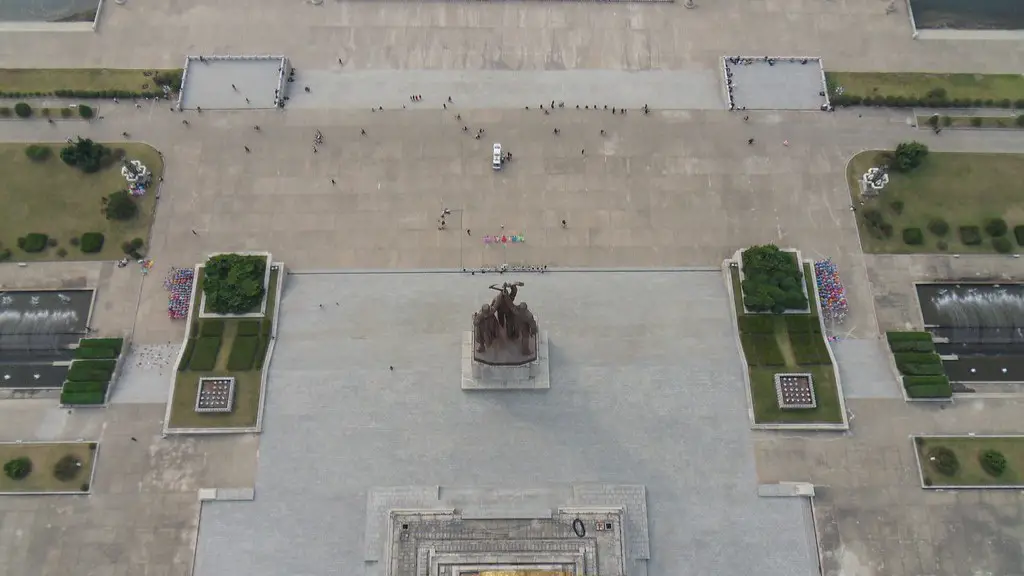China and North Korea bilateral relations
North Korea and the People’s Republic of China started developing diplomatic relations in 1992, transitioning from hostile neighbours to formal diplomatic allies. China views North Korea as a buffer against other military powers in the region, such as South Korea and Japan. Despite North Korea’s reluctance to accept China’s gradual change to a market economy, the two countries have remained allies so far.
The relationship between China and North Korea took some significant changes in the last decades. Previous economic support has diminished as of 2017, and open criticism of the North Korean government has even been publicly expressed by Chinese leaders. Still, the alignment between these two countries remains largely consistent, mostly due to geopolitical and strategic interests in the region.
The challenge posed by the United States on Chinese and North Korean foreign policies, in respect to weapon programs has placed the two countries in an even closer association. While offering nuclear promises to the North Koreans, Chinese authorities have also invested on economic resources in North Korea. Despite the economic cooperation, North Korea has demonstrated that it is still in need of substantial amount of foreign resources, particularly to maintain its nuclear arsenal.
U.S – North Korean conflict
The current tension between the United States and North Korea is mostly due to their different views on nuclear arms. North Korea has been working to acquire nuclear weapons and the capacity to deliver them in the past decade. The U.S. tried to negotiate terms for North Korea to abandon the development of these weapons, and failed to do so.
This has triggered the United Nations to impose restrictive sanctions to North Korea, most of them being supported by China. Still, Chinese officials have expressed their opposition to any military action against North Korea, stating that any such actions could cause catastrophic consequences in the region and it could even fuel a war.
Relative stability
China has kept a relative attitude of stability during the past years in their relations to North Korea. On the economic side, Beijing has kept offering the Northern neighbors support on the priority of avoiding further aggravation of the situation in the Korean peninsula. On the military side, Chinese government reaffirmed its opposition to any kind of nuclear weapons build up in North Korea, however, it has also opposed any deployment of military forces on the peninsula.
China’s strategy
When it comes to the North Korea crisis, a great majority of experts agree that the Chinese strategy is what largely affects the conflict’s outcome. A good part of the strategies employed by Chinese authorities, such as diplomatic diplomacy and economic incentives, have contributed to maintain peace in the region.
Moreover, Chinese efforts also serve as a way to strengthen the relationship between the two as well, by offering educational and cultural exchange programs, trade, and infrastructure and military equipment. China has already deployed troops to the Korean Peninsula and has a presence in North Korean territories such as Dandong.
China’s commitment
Despite North Korea’s resistance to a full open market economy, Chinese authorities appear to be doing their best to preserve and improve the relations between the two countries. China has made a great deal of investment on North Korean infrastructure and has continued to provide aid to North Korea and keep the ties strong.
The Chinese government has made a commitment to support North Korea in a war situation as long as North Korea does not violate any of the UN resolutions again. This is a commitment China has maintained since 2002, when it signed the Sino-North Korean mutual aid and cooperation treaty.
China’s role in the international community
The Chinese government has a long history of maintaining a stable balance in the Asia-Pacific region, by avoiding military confrontations in favor of a diplomatic solution. Such is the case of North Korea, where Beijing has become a major player in the diplomatic efforts to mitigate the nuclear tensions in the region.
In fact, China is working with UN Security Council members to find a diplomatic solution for the nuclear obstruction presented by North Korea. China has put forward the idea of a “dual-track approach” – the implementation of sanctions, to be gradually lifted if North Korea gives up its nuclear weapons in exchange for security assurances and economic incentives from the international community.
China’s stance
In agreement with this “dual-track approach”, China has adopted a more balanced stance in pressuring North Korea to disarm its nuclear weapons, reasoning that dialogue and compromise is the best way forward. As the largest backer of North Korea, China has the capacity to influence its actions, but it is also conscious of the risks war might bring to the region.
As economic interests between the two countries grow, China is becoming more flexible in negotiating with North Korea and engaging in negotiations with the US, in order to work out a mutually beneficial solution that satisfies all parties.
China’s economic influence
North Korea heavily relies on economic support from China, and Beijing, in turn, is also aware of this is reliance, which means that Chinese have significant leverage over North Korea when it comes to foreign policy and decisions.
In light of recent events, China has become more open to negotiating with North Korea and adjusting government policies to accommodate their interests. For example, China has softened their stance on the sanctions imposed by the United Nations.
Furthermore, China is also investing heavily in North Korean infrastructure, and has opened industries within the North Korean economy. This has had a positive effect on North Korean citizens, with an estimated increase in GDP per capita of 6-7% in 2017.
Conclusion
Overall, China has committed to providing North Korea with military and economic support in case of any kind of war. The Chinese government believes that this is the best way to keep peace and stability in the Korean Peninsula and to deescalate the conflict between North Korea and the United States.
As the economic ties between the two countries strengthens, the Chinese government is expected to continue their stance of diplomatic diplomacy and economic incentives, in order to keep peace in the region.


